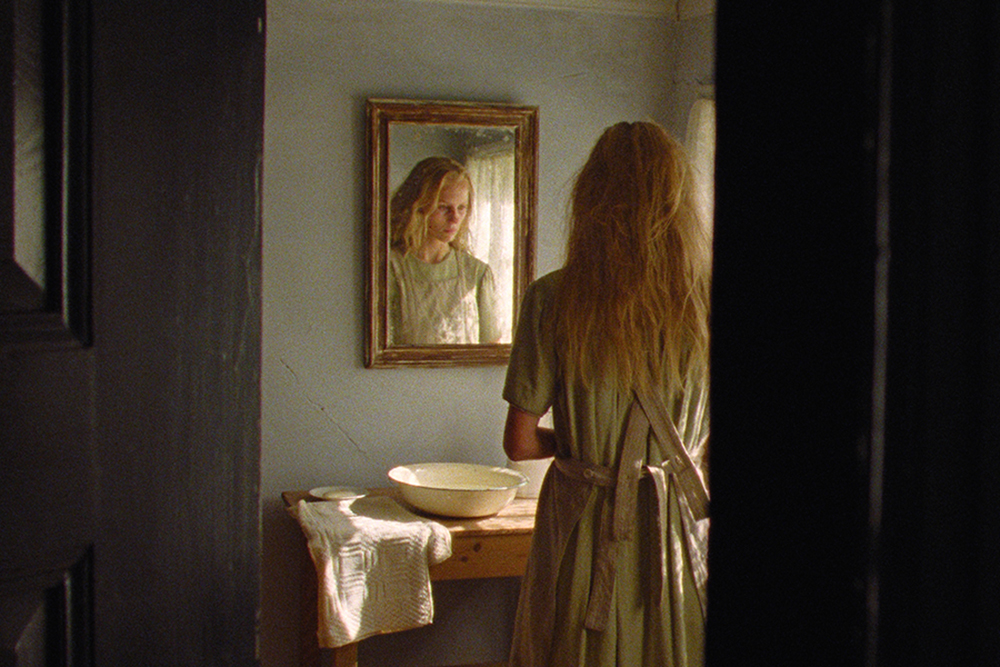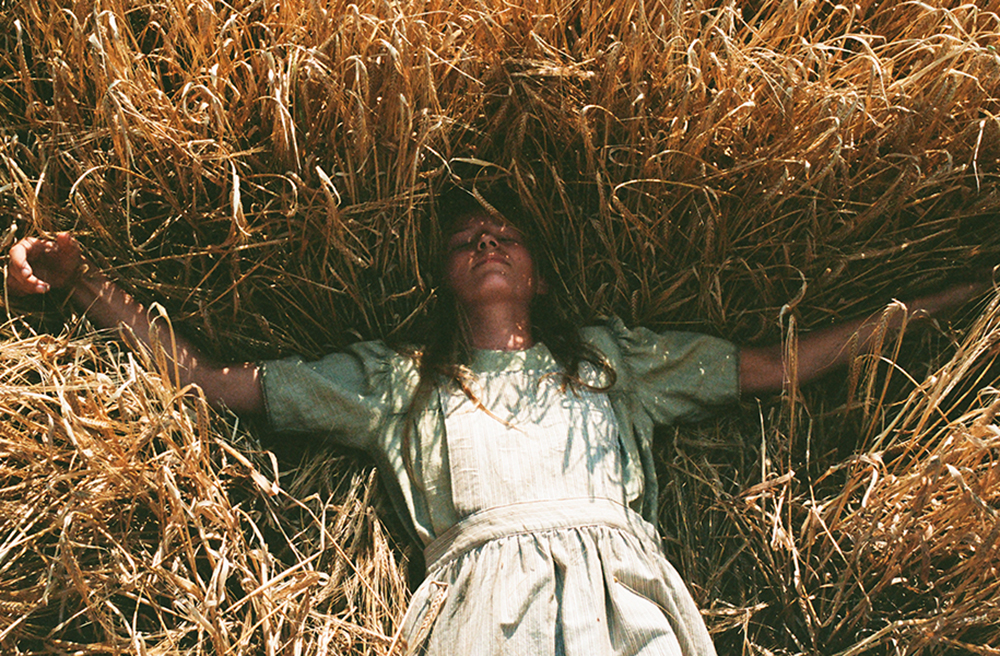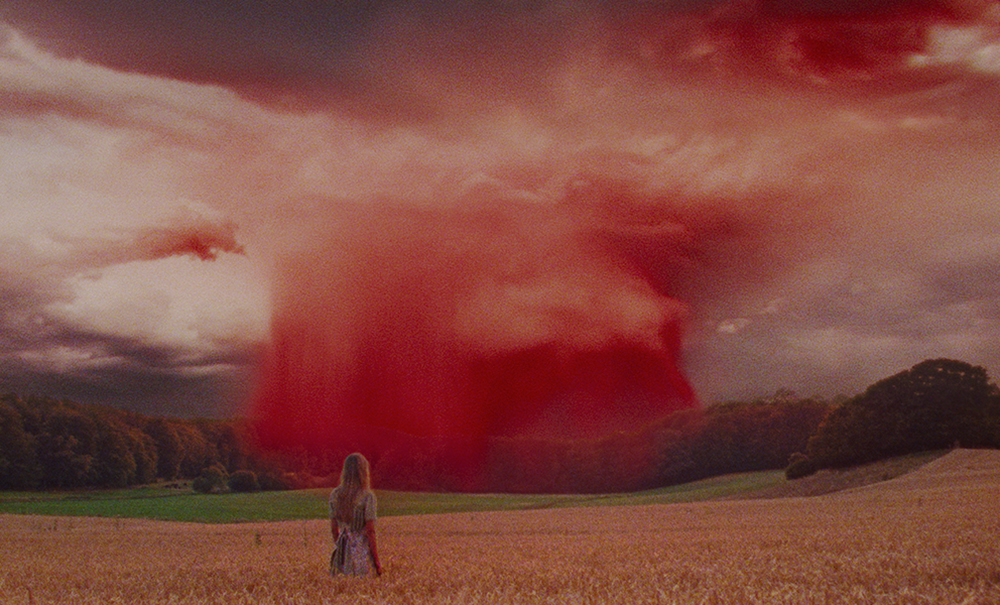Religion has been showcased in cinema since its beginning and in many ways, portraying the positive and negative aspects. Some films take entire chapters from the Bible, like Mel Gibson’s “The Passion of the Christ” (2004); others are way more evident by their narrative than their look, like “The Chronicles of Narnia: The Lion, the Witch, and the Wardrobe” (2005). There are ways that you can implement pious analogies into movies without being that obvious about it; those are the ones that seem to work best, as we saw most recently in David Lowery’s masterwork, “The Green Knight.” That is what happens with Tea Lindeburg’s innovative debut feature, “As in Heaven” (or “Du som er i himlen”).
Set way back in the late 1800s in rural Denmark, 14-year-old Lise is the daughter of an acknowledged farming family. She has been preparing herself for the day that will change her life forever; leaving the farm to attend school. The plan that her absent father has a distaste for. However, her dreams may change because her mother, Anna, is in the final stages of a complicated pregnancy. Her fate is entrusted to Old Sine, a devoted housekeeper who doesn’t want to call the doctor because Anna associates them with death.
It all starts with a beautifully portrayed vision sequence of Lise walking through the meadows. As she stops to pick up a dandelion, she then blows on the flower. As its leaves go with the wind and up to the sky, it creates a cloud of sorts which, instead of pouring rain, it is showering down blood; making the fields crimson red. With only one scene into the film, it convinced me that true talent was handling the project.

It mainly focuses on the people held captive by the fear of their faiths and the faith others have. This causes them not to expand themselves from their individuality. One believes medicine is a cure while others forge into their memories that it is resemblant of demise. It’s ignorance, all entangled with an exclusionist dogma. Instead of the viewpoint of a very empowered family, which is the example we see most in filmmaking,
There are shots in this that feel very Malickian, like ones in his movies “A Hidden Life” (2019) and “Days of Heaven” (1978), because of its simplicity mixed with shooting on location and incredible landscapes. Although Terrence Malick’s films have that religious expression quite self-confidently, with his next feature focusing on the life of Jesus, most of them end up working well without being very self-indulgent. “As in Heaven” doesn’t shove the allegory in your face. Instead, it sets it all off in the atmosphere; either Lise’s visions or her current feeling of solitude or the state of non-progressiveness in the land.
There is a sense of fear and foreboding in the ether as things don’t get better. Lise has some moments of escape and romance to try and forget about these moments. Or, to try and have a different mindset, but she can’t. The dread follows her as she knows if things go wrong, she might never leave the farm and spend her days working there to ensure her brothers and sisters get well. That feeling makes this picture feel like a horror flick at times; not that it is scary, but the sensations it brings cause that sort of tension.

What Tea Lindeburg does here is what she has shown us in her Netflix series, “Equinox“ (2020). She builds up the tension with small doses of anxiety and sets it up into the atmosphere. One of the reasons that stress is kept throughout is because of Åsa Mossberg’s tight editing. Having worked with provocateur Lars von Trier on “Antichrist” (2009), a film I reasonably like, she balances eerie settings with beautiful landscapes. Of course, there aren’t images as sinister or eldritch as in said movie, but the first few shots set up the ambiance.
“As in Heaven” does have some moments where you disconnect from the story and aren’t as impactful as they need to be; however, the most simplistic scenes of delicacy and worry uplift the film. It is subtle, finely-drawn, and not too long (which was vital because it doesn’t overstay its welcome). Albeit, it packs a punch in its environment. The story is about incomprehension and credence in hand with your dreams toppling down from the highest point.
This review of “As in Heaven” is written from its screening at the 2021 Toronto International Film Festival (TIFF).


